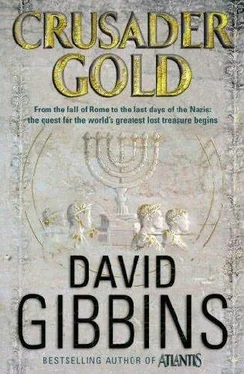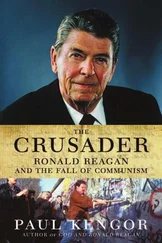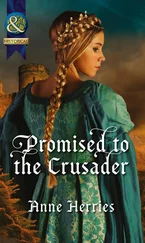David Gibbins - The Crusader's gold
Здесь есть возможность читать онлайн «David Gibbins - The Crusader's gold» весь текст электронной книги совершенно бесплатно (целиком полную версию без сокращений). В некоторых случаях можно слушать аудио, скачать через торрент в формате fb2 и присутствует краткое содержание. Жанр: Прочие приключения, на английском языке. Описание произведения, (предисловие) а так же отзывы посетителей доступны на портале библиотеки ЛибКат.
- Название:The Crusader's gold
- Автор:
- Жанр:
- Год:неизвестен
- ISBN:нет данных
- Рейтинг книги:3 / 5. Голосов: 1
-
Избранное:Добавить в избранное
- Отзывы:
-
Ваша оценка:
- 60
- 1
- 2
- 3
- 4
- 5
The Crusader's gold: краткое содержание, описание и аннотация
Предлагаем к чтению аннотацию, описание, краткое содержание или предисловие (зависит от того, что написал сам автор книги «The Crusader's gold»). Если вы не нашли необходимую информацию о книге — напишите в комментариях, мы постараемся отыскать её.
The Crusader's gold — читать онлайн бесплатно полную книгу (весь текст) целиком
Ниже представлен текст книги, разбитый по страницам. Система сохранения места последней прочитанной страницы, позволяет с удобством читать онлайн бесплатно книгу «The Crusader's gold», без необходимости каждый раз заново искать на чём Вы остановились. Поставьте закладку, и сможете в любой момент перейти на страницу, на которой закончили чтение.
Интервал:
Закладка:
“The Temple of the Warriors,” Jeremy murmured. “That was the most sacred place of the Toltecs, but it sure wasn’t a temple of peace. It was more like Wewelsburg Castle in Bavaria, the headquarters of the SS.”
“Not exactly what Vespasian had in mind,” Maria said.
Costas was nodding enthusiastically. “Thinking outside the box. I like it.”
“See?” Jack grinned. “Not much different from engineering. You have your plodders, and you have your geniuses.”
“I take it you’re referring to Jeremy.”
Maria was still deep in thought. “So when the Toltecs die out, the menorah vanishes from history, just as we used to think it did at the end of the Roman Empire,” she said.
“The trail goes cold,” Jack agreed.
“Any leads?”
Jack looked at Jeremy, who gazed back blankly and then suddenly looked distracted. He delved with his free hand into a satchel on the table and pulled out a book. “What you were saying. I’ve just had a brainstorm. It’s something else I found when I was looking for clues in the Maya texts. I couldn’t think of a link when I read it, but it’s suddenly dawned on me. It’s possible, just possible.”
“Not again.” Costas looked at Jeremy with mock horror. “You’re not going to spring another secret society on us.”
“Have no fear.” Jeremy finished his bread and wiped his mouth, then took a gulp of water. “Remember how it took the Spanish years to conquer the Yucatan, a lot longer than central Mexico? The Yucatan was the first place Cortes landed, but he didn’t stick around long.”
“No gold,” Costas offered.
“Right. But he may have missed his cue there, maybe missed the biggest treasure of them all.”
“Go on,” Jack said.
“You won’t believe this, but the last of the Maya kings wasn’t conquered until 1697. That’s 1697,” Jeremy emphasised. “And he was a direct descendant of the kings of this place, of Chichen Itza.”
Jack looked stunned. “That’s almost two centuries after Cortes!”
“I thought Chichen Itza was already destroyed, abandoned before the Spanish arrived,” Costas interjected.
“Several decades before Cortes, in the fifteenth century.” Jeremy nodded. “The Toltecs were already long gone, imploded in some awful bloodbath two centuries before. They were replaced by a more civilized Maya dynasty called the Itza, the people who gave their name to the place. What happened here in the final days is shrouded in mystery, but when the Maya finally abandoned the temples, they left here forever, disappeared into the jungle and wandered around for years like the lost tribes of Israel.”
“Maybe they had a collective breakdown,” Costas mused. “Centuries living in a horrifying vortex of violence, all that terror and sacrifice taking its toll. They finally cracked.”
Jeremy laughed. “Well, whatever happened, they eventually made their way to Lake Peten, more than four hundred kilometres south in what’s now Guatemala. Impenetrable jungle, as far away from the Spanish as you could get. They paddled across to a remote island and established a new city, Tah Itza. They lasted there for generations, undisturbed and unknown except to a few missionaries. Tah Itza came to have a mystical reputation among the Spanish. To some it was a terrifying jungle stronghold, a bastion of fierce warriors who practised satanic rituals, a hell on earth. To others it was a place of untold riches that could only be reached after great hardship, a kind of Maya Shangri-La, or Avalon.”
“Back to King Arthur again,” Costas murmured. “I doubt whether Tennyson would have ever dreamt of putting his Avalon in the Mexican jungle.”
“They could have had their treasure with them,” Jack murmured. “They may have been a vanquished people, a shadow of their former glory, but they would have salvaged what they could from Chichen Itza. Like the Israelites, they would have kept with them their most sacred possessions, their greatest wealth.”
“Maybe they associated the menorah with the eagle-god, with the return of the king,” Maria said. “That reference Jeremy found in the Book of Chilam Balam suggests the Maya had some memory of Harald and the Vikings. Remember what Reksnys said about the local Maya today, their reluctance to go down into the cenote below the temple. Maybe Harald was transformed into a kind of mythical saviour god, fighting for the Maya against their Toltec oppressors. Maybe two hundred years after Harald met his end some intrepid Maya salvaged the menorah from the Toltec inferno, and it passed into yet another culture.”
“If they hadn’t already sacrificed it,” Jack said.
“Or melted it down.”
“What we know comes from a manuscript revealed in Mexico only recently, in the late 1980s,” Jeremy continued. “It’s an incredible story, the account of a Franciscan friar, Fray Andres de Avendano y Loyola, who reached Tah Itza in 1695. Avendano was a man of exceptional intellect and physical stamina, with great moral strength and sense of purpose. He became fascinated by the people he was sent to convert, as concerned with their livelihood as with proselytising. The early missionaries get a bad press out here, but without scholars like Avendano we’d know virtually nothing of these people, and whole populations would have become extinct. Father O’Connor was part of that tradition.”
“I wonder if Patrick knew anything about this,” Maria murmured.
Jeremy opened the book. “According to his own account, Avendano arrived that year on the shore of Lake Peten accompanied by two Franciscans and ten converted Maya. From the east, across the lake, they saw a spectacular sight.” Jeremy read out a passage. “A great wedge-shaped flotilla of canoes, all of them adorned with many flowers and playing much music with sticks and drums and wooden flutes. And seated in one larger than all was the king of the Itza, who was the Lord Kanek, which means the star twenty serpent.”
“Sounds awesome,” Costas murmured. “Any gold?”
“What Avendano saw was every Spaniard’s fantasy about the New World, the kind of thing the conquistadors sold their souls for two centuries before but rarely ever saw. You can tell Avendano was overwhelmed. His instincts as a Jesuit were clouded by that lust that drove the Spaniards to conquest, like a shark smelling blood.”
Jack smiled. “Go on.”
“The last of the Maya kings came before them. Listen to this. He wore a crown of gold, and gold discs in his ears from which golden pendants hung down to his shoulders. He had bands of pure gold on his arms and golden finger-rings, and his blue sandals were covered with golden bells.”
Costas whistled. “He was weighed down with gold.”
Jeremy shut the book. “Avendano failed to convert the Itza. Two years later the city fell to Spanish arms.”
“You say they brought their treasure with them from Chichen Itza?” Costas said.
“That’s the story.”
“That’s an awful lot of gold, for a vanquished people.”
“Just a thought.”
Jack was nodding slowly. “If the Maya were so secretive about their sacred texts, those books of Chilam Balam that prophesised the arrival of bearded men from the east, then they could have concealed untold other treasures. With the Spanish hunting everywhere for gold, an island stronghold on a lake set deep in the jungle sounds about right.”
“And maybe it was just gold, pure and simple,” Costas said. “All that prestige value, all the meaning the menorah had for the hated Toltecs, had fallen away. Once the Maya reached their hideaway, maybe they melted it down.”
“And then it comes full circle,” Maria said softly.
“What do you mean?” Costas said.
“Think about it. The Spanish conquer the last stronghold of the Itza. They finally get their Maya gold. Only it isn’t Maya gold at all. And what do they do with it? They’re hardly going to sit on their jackpot in the jungle.”
Читать дальшеИнтервал:
Закладка:
Похожие книги на «The Crusader's gold»
Представляем Вашему вниманию похожие книги на «The Crusader's gold» списком для выбора. Мы отобрали схожую по названию и смыслу литературу в надежде предоставить читателям больше вариантов отыскать новые, интересные, ещё непрочитанные произведения.
Обсуждение, отзывы о книге «The Crusader's gold» и просто собственные мнения читателей. Оставьте ваши комментарии, напишите, что Вы думаете о произведении, его смысле или главных героях. Укажите что конкретно понравилось, а что нет, и почему Вы так считаете.












